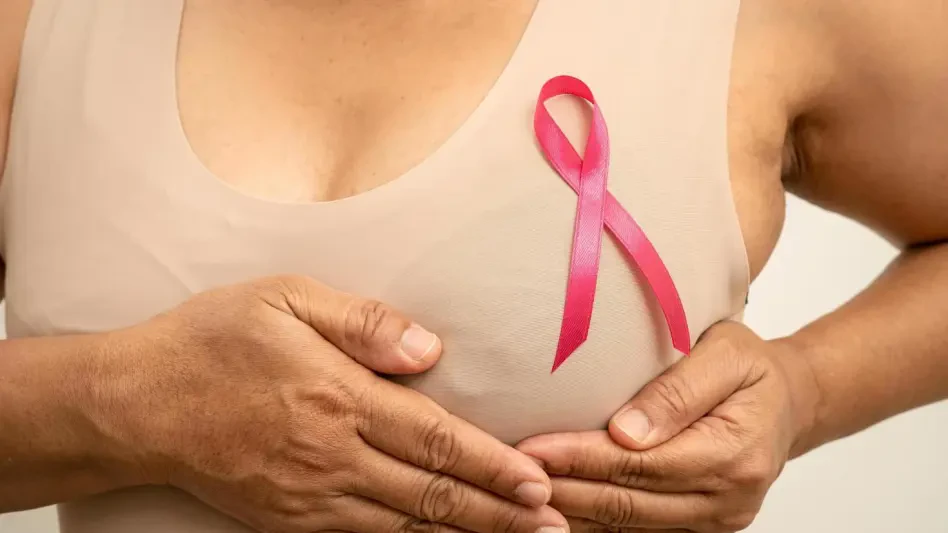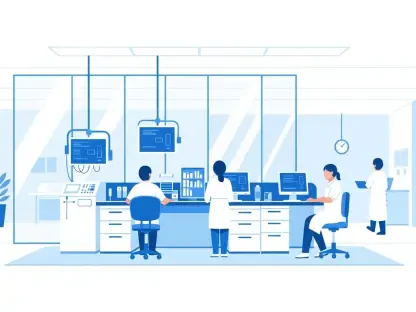I’m thrilled to sit down with Faisal Zain, a renowned healthcare expert with a deep focus on medical technology. With years of experience in the development and manufacturing of cutting-edge medical devices, Faisal brings a unique perspective to the evolving landscape of healthcare innovation. Today, we’re diving into a critical topic in oncology and pharmaceutical development: the application of Mytesi, a novel drug by Napo Pharmaceuticals, for FDA Orphan Drug Designation to treat diarrhea in breast cancer patients with brain metastases. Our conversation explores the science behind this plant-based treatment, the significance of special FDA designations, the challenges of clinical trials, and the broader impact on patient care.
Can you walk us through what makes Mytesi a unique option for managing diarrhea in breast cancer patients with brain metastases?
Absolutely. Mytesi, also known as crofelemer, stands out because it’s a plant-based drug derived from the red bark sap of the Croton lechleri tree in the Amazon rainforest. Its mechanism is quite fascinating—it works locally in the gut to normalize the balance of salts and water. This helps reduce watery diarrhea without systemic absorption, which means fewer side effects compared to many traditional drugs. For breast cancer patients with brain metastases who are on targeted therapies, this is crucial because they’re already dealing with complex treatment regimens, and managing side effects like diarrhea can make a huge difference in their quality of life.
How does Mytesi specifically address the imbalance of salts and water in the gut, and why is this approach significant?
Mytesi targets specific chloride channels in the intestinal lining, reducing the excessive secretion of chloride ions that pull water into the gut, leading to diarrhea. By modulating this process, it helps restore a normal flow of fluids. This physiological approach is significant because it directly tackles the root cause of diarrhea in these patients, especially those on targeted cancer therapies that often disrupt gut function as a side effect. It’s a more targeted solution compared to older symptomatic treatments that might just mask the issue or cause other complications.
Why do you think Napo Pharmaceuticals chose to focus on breast cancer patients with brain metastases for this Orphan Drug Designation application?
I believe the focus on this specific group stems from the high unmet need. Breast cancer patients with brain metastases are often on aggressive targeted therapies, which, while effective against the cancer, frequently cause severe diarrhea. This subgroup faces unique challenges because their condition is rare and complex, fitting the criteria for orphan status. Moreover, the impact of diarrhea in these patients can be particularly debilitating, given the advanced stage of their disease and the critical nature of maintaining their treatment schedules.
Can you elaborate on how diarrhea as a side effect affects the overall cancer treatment journey for these patients?
Certainly. Diarrhea isn’t just an inconvenience; it can derail the entire treatment plan. When patients experience severe diarrhea, they often need dose reductions, treatment delays, or even complete cessation of their cancer therapy. This can compromise the effectiveness of the treatment and ultimately impact outcomes. Beyond that, it affects their day-to-day life—causing dehydration, malnutrition, and a significant hit to their dignity and emotional well-being. A drug like Mytesi could help keep them on track with their therapy by managing this side effect more effectively.
What exactly is Orphan Drug Designation, and why is it such a big deal for a treatment like Mytesi?
Orphan Drug Designation is a special status granted by the FDA for drugs that target rare diseases or conditions affecting fewer than 200,000 people in the U.S. It’s a big deal because it recognizes the challenges of developing treatments for small patient populations where the financial return might not otherwise justify the investment. For Mytesi, this designation is key because it validates the importance of addressing diarrhea in this niche group of breast cancer patients and provides a pathway for focused development and potential approval.
What kind of advantages does this designation offer to companies developing drugs for rare conditions?
The incentives are substantial. Companies with Orphan Drug Designation can benefit from tax credits for clinical trial costs, waivers on certain FDA fees, and, if the drug is approved, up to seven years of market exclusivity. This exclusivity means they’re protected from direct competition for that specific indication during that period. For a company like Napo Pharmaceuticals, these benefits can offset the high costs and risks of drug development, making it feasible to bring a niche treatment like Mytesi to market.
Mytesi has also been explored for other conditions like short bowel syndrome and cholera-related diarrhea. How does its application for breast cancer diarrhea build on those earlier efforts?
Mytesi’s prior Orphan Drug Designations for conditions like short bowel syndrome and cholera-related diarrhea demonstrate its versatility in addressing gut-related issues across different causes. The core mechanism—regulating fluid balance in the intestines—remains consistent, whether the diarrhea is caused by infection, a congenital condition, or a side effect of cancer therapy. This new application for breast cancer patients builds on that foundation by targeting another critical area of need, leveraging the drug’s established safety profile and mechanism to address a side effect in oncology.
There’s been mention of seeking Breakthrough Therapy or Fast Track Designation for Mytesi. Can you explain what these mean and how they could impact the drug’s journey to market?
Both designations are FDA programs designed to speed up the development and review of drugs for serious conditions with significant unmet needs. Breakthrough Therapy Designation offers intensive guidance from the FDA and can accelerate approval if the drug shows substantial improvement over existing treatments. Fast Track Designation provides more frequent interactions with the FDA and potential for rolling reviews, where parts of the application can be submitted and reviewed before the full package is ready. For Mytesi, either could mean a faster path to patients who desperately need better options for managing diarrhea during cancer treatment.
The OnTARGET clinical trial for Mytesi didn’t meet its primary goal for diarrhea prevention across a broad group of cancer patients. Can you share your thoughts on why that might have happened?
The OnTARGET trial was ambitious in targeting a wide range of solid tumor patients on targeted therapies, but the heterogeneous nature of the group likely played a role in missing the primary endpoint. Different cancers and therapies cause diarrhea through varying mechanisms, and patient responses can differ widely. However, it’s encouraging that subgroup analyses showed meaningful benefits in specific cancers like breast and lung cancer. This suggests that Mytesi may be more effective in certain patient populations, which is why refining the focus to specific groups, like breast cancer patients with brain metastases, makes sense for future studies.
Looking ahead, what is your forecast for the role of treatments like Mytesi in improving the quality of life for cancer patients dealing with therapy side effects?
I’m optimistic about the future of supportive care treatments like Mytesi. As cancer therapies become more targeted and personalized, we’re seeing longer survival rates, but that also means patients are living with side effects for extended periods. Drugs that can manage these side effects without adding to the treatment burden are going to be critical. I believe Mytesi and similar innovations could redefine how we approach patient care in oncology, prioritizing not just survival but also dignity and comfort. If successful, it could pave the way for more research into non-systemic, natural-derived therapies for other challenging side effects.









